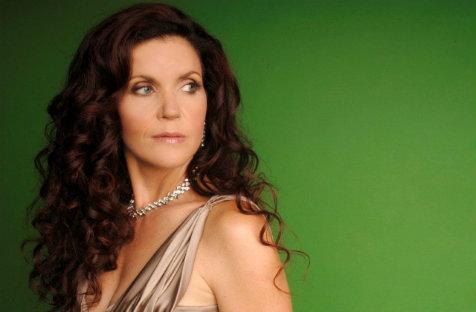A distant drumbeat intruded upon the murmur of conversation as Paul Wright led a procession of two violins and a drum up the aisle, while other musicians entered in the accustomed manner. This dramatic device introduced an important element to the evening’s entertainment: the physicality of music.
In his opening remarks, Howard Penny welcomed the audience to Versailles and outlined a long-cherished project. His belief that musicians should be more than ‘one trick ponies’ has resulted in Australian National Academy of Music (ANAM) students participating in a short, intensive course where the physical experience of dance and gesture was used to enhance their understanding of 17th century musical practice. Even students who were not playing in this concert were tutored by Helga Hill, a renowned teacher of early dance practice. The aim was to increase the versatility of ANAM’s musicians by giving them greater control and understanding of the body in space, enabling them to experience music in a more visceral, fundamental way.
The change of emphasis from the advertised program, which had included a couple of works by Berio, meant that the musicians were able to engage with these concepts more fully. Lully’s dance movements were indeed invested with rhythmic grace and emotional engagement.
A leading exponent of Baroque repertoire, Sara Macliver was a delight both musically and dramatically. With flowing hair and resplendent in red and gold sari-style gown, she made a striking impression as the enchantress Armida. The inner conflicts of a woman who simultaneously wants to kill and be loved by the hero, Renaud, provided Macliver with an opportunity to make the most of her expressive, finely controlled legato and extraordinarily pure and resonant upper register. From vibrant and ringing to warm and melting, Macliver’s vocal range conveyed a convincing portrait of a woman in love but ultimately bent on destruction.
Led by the highly skilled and energetic Paul Wright, the playing of Muffat’s suite of diverse national dances by a small ensemble was stylish and engaging. Paul Wright’s illuminating introduction to the suite further emphasised the importance of the part of the music that is not written down. Muffat was the person who codified the bowing system established by Lully and demonstrated how bow stroke could subtly alter rhythm. It is this lilt and elasticity that the musicians successfully incorporated into their performance. I must confess to a preference for the English jig rather than the stately Spanish Intrada or Italian gavotte, no matter how well played, but the French minuets were so buoyant and alive that I wondered if members of the audience would be tempted to leap to their feet and start dancing.
Biber’s Sonata No.7 in C Major was also performed by a small ensemble, this time featuring two trumpets. Thibaud Pavlovic-Hobba joined Paul Wright in a fine display of highly demanding violin playing, while Josh Rogan’s virtuosity on the trumpet was complemented by a reliable performance by Shane Hooten. A period wig, worn by the double bass player, provided a focus for some courtly manners and amusement.
A larger ensemble performed selections from Purcell’s The Fairy Queen. In addition to a series of attractive, well-shaped instrumental pieces, Sarah Macliver sang two of the songs from this musical spectacle. Accompanied by muted strings, See, even night herself is here was sung with particular beauty of tone. Although diction was sometimes at the mercy of line, the sacrifice appeared to be justified, especially as words were intelligible when they became more important. Her change of costume to pale green with appliqué flowers enhanced the mood of the music. Further atmospherics came from an unearthly double echo from the balcony in the Echo piece and a final rousing Hornpipe, complete with the drum that was featured in the opening procession.
This may not have been the electrifying and joyous experience of the previous Director’s Choice concert, but few occasions are. ANAM students, Anthony Marwood, and Beethoven’s fifth symphony left the audience stamping and cheering; Saturday night’s audience were left with the warm after-glow of a most pleasurable and rewarding experience. We had the satisfaction of knowing that a talented group of young musicians were being offered an opportunity to hone their skills and broaden their cultural understanding in ways that were imaginative and inspiring, and led to further excellence in their music-making. Australia is fortunate to have such an institution.
Rating: 4 stars out of 5
Paul Wright & cellist Howard Penny direct
Paul Wright – violin
Howard Penny – cello
Sara Macliver – soprano
Australian National Academy of Music Orchestra
Program
Jean-Baptiste Lully Marche pour la Cérémonie des Turcs from Le Bourgeois Gentilhomme
Selected arias from Armide
Georg Muffat Suite in D minor, Nobilis Juventus
Heinrich Biber Sonata No.7 in C Major from Sonatae tam aris quam aulis servientes
Henry Purcell Selections from The Fairy Queen
Australian National Academy of Music, South Melbourne
3 November





